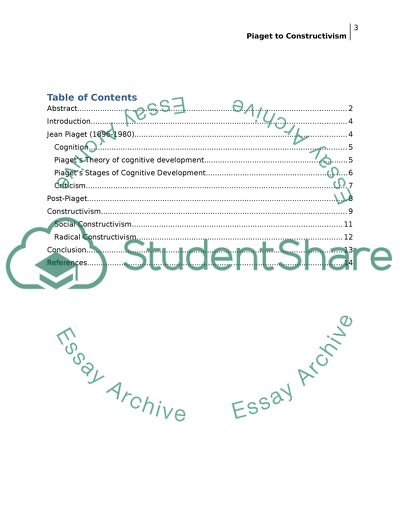Cite this document
(“Piaget to Constructivism Research Paper Example | Topics and Well Written Essays - 2500 words”, n.d.)
Retrieved de https://studentshare.org/psychology/1391224-piaget-to-constructivism
Retrieved de https://studentshare.org/psychology/1391224-piaget-to-constructivism
(Piaget to Constructivism Research Paper Example | Topics and Well Written Essays - 2500 Words)
https://studentshare.org/psychology/1391224-piaget-to-constructivism.
https://studentshare.org/psychology/1391224-piaget-to-constructivism.
“Piaget to Constructivism Research Paper Example | Topics and Well Written Essays - 2500 Words”, n.d. https://studentshare.org/psychology/1391224-piaget-to-constructivism.


